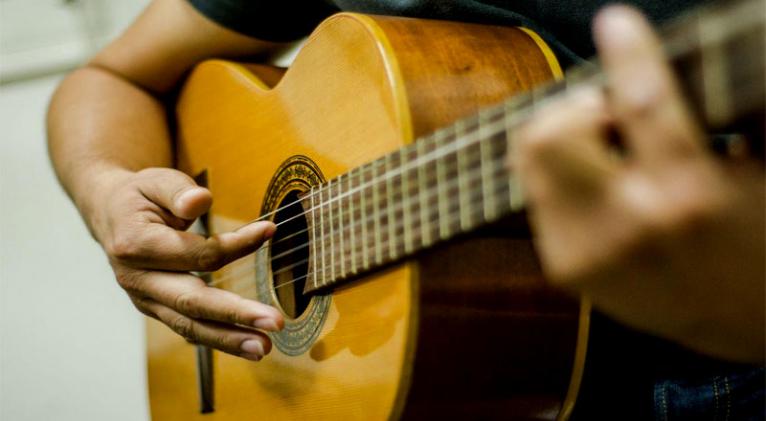We sing for the love of all
especiales

It had to be: it's the usual Trova. Tender, profound, creative. In Canción de Septiembre (Song for September), poetry and epic embraced on stage, as it should be. Since this movement was born 50 years ago, the Nueva Trova has done so again and again as something natural. It has always sought for that embrace even though some —oh poor people with flimsy chest and ears submissive to dogma— do not understand it. How much of Sindio’s La Bayamesa they brought in their voices to this new era! And how much these singers were needed!
Without fuss, or grandiloquent words the act goes on. The stilted, clumsy behavior has no room here. Art and epic go hand in hand. How heroic is the tenderness of art and how heroism is colored with art! Those who died that September 5th, in Cienfuegos, fell pursuing their dream of freedom, their love for all. These men faced evil with the necessary violence and offered their lives in return. They did not want their shackled homeland to suffer any longer.
It is poetry linked to epic invading the theater. It is to reach people’s heart so to revive what cannot be dead; otherwise, we could all die. They are troubadours with their artistic works, which are bigger than themselves: these creations no longer belong to them. They did it for the people and so the people’s tenderness, passion, and truth were hence strengthened.
Many sing these songs although some may go out of tune. There is a profound shock, one tear came into my eyes. No! These men fought to bring us joy. It is our turn to improve it and raise it from the purest of roots. The event comes to an end. On stage, some troubadours get together to perform a wonderful, collective singing. I see Cienfuegos’ troubadour Lázaro García. I know he is dead. But I hear his voice…
Even though Shakespeare said: “brevity is the soul of wit,” we all want the ceremony to continue: we want to continue singing to the protagonists of that September 5th, all of our freedom fighters, to ourselves, from the bottom of our hearts.
Translated by Sergio A. Paneque Díaz / CubaSí Translation Staff














Add new comment